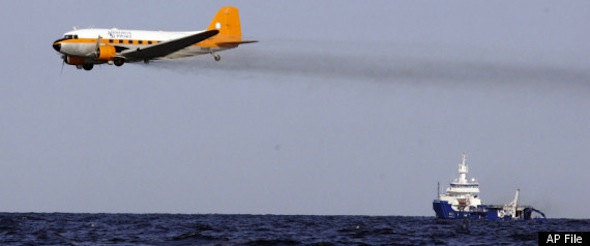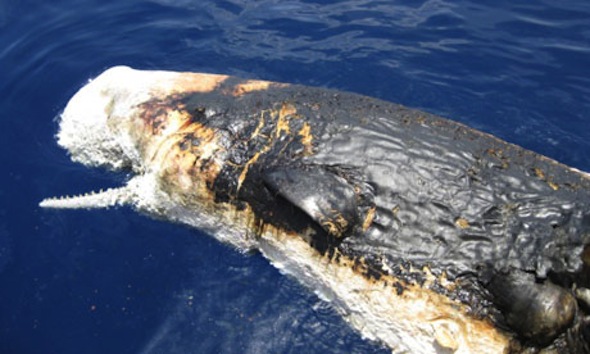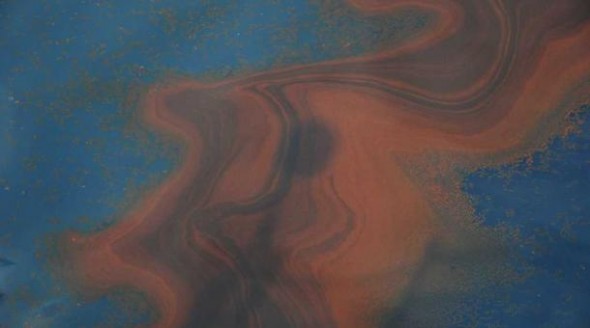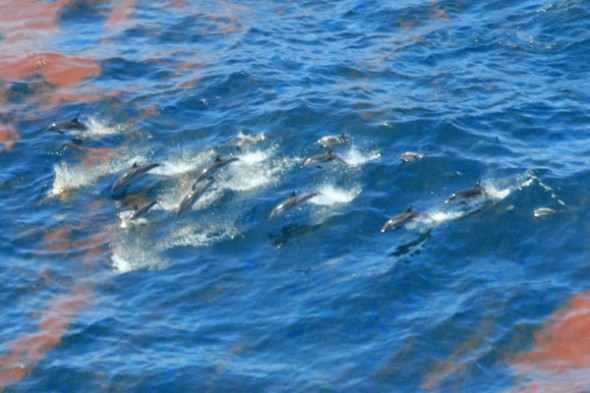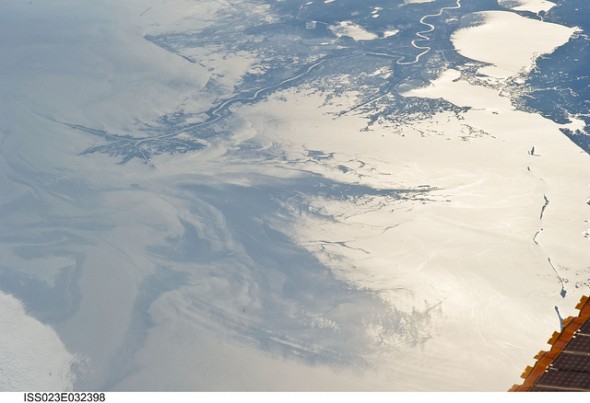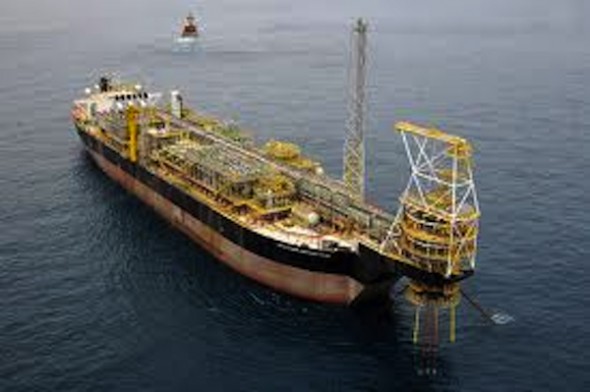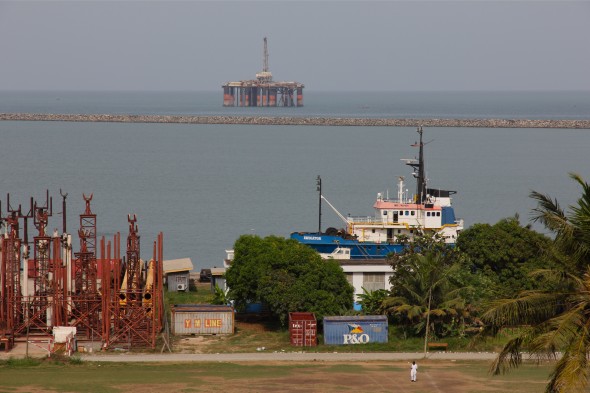Deepwater Horizon spill: Three years on, terrible new revelations
What BP Doesn’t Want You to Know about the Gulf Spill is a new article by Mark Hertsgaard, and if you have ever wondered how the largest single, accidental oil spill in the world just vanished, don’t miss this story. It is an absolutely shocking recounting of BP’s massive, reckless use of the highly toxic dispersant, Corexit, which effectively “disappeared” much of the spilled oil and in the process caused untold damage to clean-up workers’ health and the ecosystem.
Three years after the spill, Herstgaard writes, the disaster has been largely forgotten. “Such collective amnesia may seem surprising,” he continues, “but there may be a good explanation for it: BP mounted a cover-up that concealed the full extent of its crimes from public view. This cover-up prevented the media and therefore the public from knowing — and above all, seeing — just how much oil was gushing into the gulf. The disaster appeared much less extensive and destructive than it actually was. BP declined to comment for this article.”
Did U.S. government downplay B.P. spill impact on wildlife?
Greenpeace has obtained a cache of NOAA (National Oceanic and Atmospheric Association) documents and photographs that suggest U.S. government officials kept information from the public in an attempt to downplay the environmental damage of BP’s 2010 Deepwater Horizon spill.
On June 15, 2010, NOAA crew aboard the research vessel, Pisces, spotted a dead sperm whale floating in the Gulf of Mexico. According to the Guardian, “NOAA did put out a press release about the dead whale. However, the release was edited and shortened in a way which appeared to minimise the effects of oil on whales.” The press coverage of the whale spotting was limited and it appears now that may have been the objective of U.S. officials.
Scientists forced to turn over emails related to BP oil spill
The Guardian reports today that two scientists “have accused BP of an attack on academic freedom after the oil company successfully subpoenaed thousands of confidential emails related to research on the Gulf of Mexico oil disaster.”
The accusation comes from oceanographers Richard Camilli and Christopher Reddy of the Woods Hole Oceanographic Institution in Massachusetts.
An Al Jazeera must watch
If you are concerned in the least about the environmental risks of drilling, don’t miss Al Jazeera’s latest feature report from the Gulf of Mexico, “Gulf seafood deformities alarm scientists.”
This reporting is so scary — it paints a picture of devastation that flies in the face of the feel good, everything is fine, BP-sponsored “My Gulf” ad campaign. Mutant shrimp and crabs. Dead dolphins. Strange lesions and tumors on fish. Missing eyes and oil-soaked gills. Dramatic declines in catch levels since the Deepwater Horizon disaster. It’s a nightmare and it appears that this is only just beginning.
The silent victims of oil pollution
News from the U.S. National Oceanic and Atmospheric Administration (NOAA) is supporting what many have been saying for months: Pollution from the Deepwater Horizon spill is ongoing and harming life in the Gulf of Mexico.
Yesterday the NOAA released information on the disturbing results of its dolphin study, which found that bottlenose dolphins in the Gulf of Mexico are “severely ill.”
The news was reported by the New York Times and elsewhere, but it was buried down in the environment section. The environment, dolphins, pollution — none of this seems as important as rising gas prices and the administration’s efforts to boost drilling both onshore and offshore.
BP: A settlement and many unanswered questions
For those who believed that a trial would be the best way to hold BP accountable for the shortcuts and errors that resulted in the deadly Deepwater Horizon disaster, the news out of New Orleans last night was not good.
BP has reached an agreement and will settle the case brought against it by companies and individuals whose livelihoods were impacted by the Gulf oil spill.
Judge Carl J. Barbier of Federal District Court in New Orleans issued an order late Friday night stating that the two sides “have reached an agreement on the terms of a proposed class settlement which will be submitted to the court,” and announcing that the first phase of the trial, scheduled to begin on Monday, is adjourned indefinitely while the next steps are worked out.
Jubilee partners in the news
Tullow Oil and Anadarko have been in the news, both inside and outside Ghana. In Ghana, things are going well for the two companies. Tullow, most notably, appears to be moving towards development of its recent Tweneboa and Enyera discoveries (translation: more commercial oil production on the way).
Outside of Ghana it’s a different story. In Uganda, Tullow is caught up in a political scandal involving corruption allegations. The Ugandan government has blocked Tullow’s sale of some of its Ugandan holdings to Total and CNOOC, pending an investigation. Tullow categorically denies the allegations, but there’s no denying that Uganda’s oil adventure does not look to be off to a good start.
Deepwater Horizon: Can it happen again?
I interviewed the Ghanaian EPA’s “focal person for oil and gas” Friday afternoon in Takoradi.
I asked him about the Deepwater Horizon disaster and what Ghanaian authorities believe necessary to reduce the chances of a similar event occurring here. I wanted to hear about policy directives and stepped-up enforcement of existing laws, for example. Instead, I heard that the Deepwater Horizon accident was “unique” and that something like it “could never happen in Ghana.”
Between the cheerful confidence of the EPA official and the “we’ve got safety under control” assurances of speakers at the Ghana summit, you could be forgiven for thinking that things have dramatically changed in the last year. Things have changed, but unfortunately it appears that too much remains the same.
Deepwater Horizon, nearly one year on…
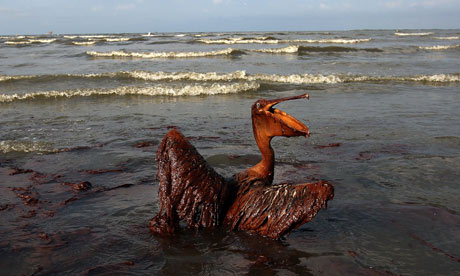
A brown pelican coated in heavy oil wallows in the Louisiana surf, June 2010. Photograph: Win Mcnamee
BP held its first annual shareholders’ meeting since the Deepwater Horizon disaster yesterday in London. The meeting was marked by protests outside and protest votes inside. Several people who had traveled to London from the Gulf of Mexico to share their stories with BP shareholders were prevented from entering and later arrested.
The protests got the meeting into the news and reminded people for a moment that the impact of the Deepwater Horizon spill is ongoing. BP claims it has learned its lessons and the Obama administration is issuing new drilling permits for the Gulf of Mexico. The oil industry has moved on, but what about the Gulf?

